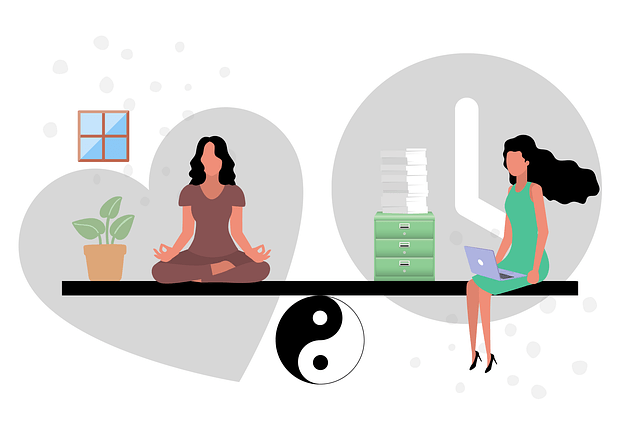
Learn how to elevate your Emotional Intelligence to better navigate your emotions and relationships!
Emotional intelligence (EI), which refers to the ability to comprehend and regulate one’s emotions and interpersonal connections, plays a crucial role in fostering happiness, forging stronger relationships, cultivating empathy, and achieving greater career success. Many individuals aspire to enhance their emotional intelligence, yet find themselves uncertain about where to begin. Fortunately, there are concrete actions that can be taken to enhance one’s emotional intelligence. This article aims to shed light on various strategies, including the identification of emotions, recognizing triggers, practicing self-compassion, fostering meaningful connections, cultivating mindfulness, engaging in physical exercise, exploring therapeutic methods, incorporating meditation into daily routines, and implementing a well-thought-out plan. By actively integrating these strategies into your life, you can gradually elevate and sharpen your emotional intelligence, enabling you to navigate emotions and relationships with greater wisdom and finesse.
Learn to Identify Your Emotions
Learning to Identify your Emotions and Enhance Emotional Intelligence Developing a strong foundation in emotional intelligence begins with cultivating self-awareness. It is not uncommon for individuals to struggle when it comes to accurately identifying their emotions beyond the basic categories of “happy” or “sad.” To overcome this challenge, it is essential to broaden your emotional vocabulary, enabling you to effectively label the subtle nuances of your feelings. One effective strategy is to maintain a daily emotions journal, which serves as a valuable tool for self-reflection and self-check-ins. Within this journal, make a conscious effort to note the circumstances that precede your emotions and pay close attention to the physical sensations they trigger within your body. Over time, this practice will empower you to recognize a broader spectrum of emotions, including but not limited to irritation, loneliness, joy, anxiety, and anger. By honing this ability to identify and understand your emotions more comprehensively, you will gain the necessary awareness to address them in constructive ways.
Understand Your Triggers
Understanding Your Emotional Triggers When it comes to understanding ourselves and our emotions, it is crucial to identify the patterns that trigger certain feelings. Take a moment to reflect on the situations or events that often precede your common emotional responses. For instance, do you find yourself becoming defensive when faced with criticism? Does being ignored make you feel insignificant? Are tense conversations a trigger for anger? By recognizing the specific circumstances that have led to past emotional reactions, you can gain valuable insights and be better prepared to manage your responses. Once you have identified your triggers, it is important to actively work on avoiding them whenever possible. By steering clear of situations or individuals that tend to set off negative emotions, you can protect yourself from unnecessary stress and turmoil.
Practice Self-Compassion
Practicing self-compassion is essential for our emotional well-being and overall sense of confidence. When we are excessively self-critical, it amplifies negative emotions, increases stress levels, and diminishes our self-assurance. However, by cultivating self-compassion, we can counteract these tendencies and experience greater resilience in the face of challenges. To nurture self-compassion, it is important to treat ourselves with the same kindness and concern that we would extend to a trusted friend. Recognize that none of us are perfect and that we are not alone in our struggles. Embrace the understanding that we are all doing the best we can, and it is okay to have moments of difficulty.
Connect with Others
Connecting with others is an inherent need for human beings, as it greatly impacts our overall well-being. Cultivating meaningful relationships should be a top priority, and to achieve this, it is crucial to develop strong rapport skills. These skills include but are not limited to empathetic listening, where we truly understand and acknowledge the feelings and experiences of others. Additionally, asking thoughtful questions demonstrates genuine interest and helps establish a deeper connection. To foster strong relationships, it is important to be present and fully engaged during interactions. This means letting go of any tensions promptly through compromise or forgiveness, ensuring that unresolved conflicts do not hinder the progress of your relationships. By doing so, you allow for a more harmonious and positive connection. Furthermore, deepening connections with others can be achieved by sharing our own feelings and experiences, as well as being supportive and showing care towards them. Authentic and open communication plays a significant role in strengthening bonds and creating a sense of trust within relationships, this is crucial to cultivating meaningful connections with others.
Practice Being Mindful
Being mindful is crucial for enhancing your ability to recognize, comprehend, and regulate your emotions effectively. To incorporate mindfulness into your routine, dedicate regular time to engage in activities such as meditation, yoga, spending time in nature, or writing in a journal. Deepen your mindfulness practice by observing your body and surroundings using all five senses, diverting your attention from racing thoughts. Instead of reacting impulsively, take a moment to pause and focus on your breath. Take the time to acknowledge and understand your feelings and the reasons behind them without passing judgment, allowing them to naturally dissipate. By responding thoughtfully rather than instinctively, you can develop a greater sense of emotional intelligence. Engaging in mindfulness practices consistently over time progressively nurtures and strengthens your emotional well-being.
Exercise Regularly
Regular exercise has numerous positive effects on mood, focus, and emotional well-being. To experience these benefits, it is recommended to engage in 150 minutes of moderate exercise per week, such as brisk walking, or 30 minutes of more intense activity like running. Being outdoors while exercising can further enhance your mental health. When you move your body, it triggers the release of endorphins, which are known as “feel-good” hormones, while simultaneously reducing stress hormones. Establishing a regular exercise routine can be achieved by starting with small, manageable goals, scheduling workout sessions, and having someone who can hold you accountable for your progress. For an even greater impact, consider combining exercise with mindfulness practices. Pay close attention to how physical movement influences your thoughts and emotions. By consistently engaging in physical activities, you can cultivate emotional resilience and enhance your overall well-being.
Learn About Cognitive Behavioral Therapy
Cognitive behavioral therapy (CBT) is a highly effective approach that aims to enhance emotional intelligence by modifying unhelpful patterns of thought and behavior. While many therapists offer CBT sessions, you also have the option to learn this valuable skillset through various free online resources. CBT equips individuals with the ability to identify and address cognitive distortions, such as overgeneralizing or catastrophizing, by reframing negative thoughts in a more rational and constructive manner. Furthermore, it emphasizes the importance of modifying behaviors that perpetuate problems. CBT goes beyond mere theoretical concepts by providing concrete tools that empower individuals to take control of their emotions, allowing them to respond thoughtfully to triggers and ultimately improve their mental outlook. By delving deep into the core principles of CBT, you will gain a profound understanding of how it strengthens emotional intelligence and equips to better handle your own emotional landscape.
Learn How to Meditate
Meditation plays a crucial role in cultivating valuable skills such as mindfulness, emotion regulation, and self-awareness, which are all fundamental aspects of emotional intelligence. To incorporate meditation into your daily routine, it is advisable to dedicate just 5-10 minutes each day for this practice. There are useful mobile applications like Calm or Headspace that can guide you through the process. Find a comfortable seated position, primarily focusing your attention on your breath, and gently redirecting your mind whenever it starts to wander. As you engage in this practice, visualize negative emotions drifting away like passing clouds. By maintaining consistency with meditation over months and even years, you can progressively enhance your emotional intelligence. It is noteworthy that even short meditation sessions have been proven effective in reducing the impact of daily stressors and alleviating anxiety.
Make a Plan on How You Will Achieve these Goals
To embark on the journey of improving emotional intelligence, it is crucial to devise a personalized plan that encompasses various specific skills. The plan should consist of actionable steps that facilitate the development of emotional intelligence. For instance, one such skill could involve self-reflection on three emotions experienced throughout the day. This exercise enables a deeper understanding of one’s emotional landscape and paves the way for growth. While crafting this plan, it’s important to anticipate potential challenges that may arise along the way. By acknowledging these obstacles and devising strategies to overcome them, you increase your chances of success. Success, in this context, can be defined as achieving a higher level of emotional intelligence and effectively managing emotions in various situations. To ensure the plan is implemented consistently, it would be beneficial to schedule regular reflection sessions.
For your reference I have included an example of what a personalized plan might look like:
- Spend 5 minutes each evening writing in an emotions journal. Note my feelings and what triggered them during that day.
- Have dinner with a friend once a week to practice empathetic listening and sharing feelings.
- Take a 10 minute walk to calm down when frustrated before reacting.
- Identify 3 cognitive distortions like “black and white thinking” I tend to have each week.
- Practice mindful breathing for 5 minutes if feeling overwhelmed or angry.
- Exercise 30 minutes 3 days per week to improve mood and resilience.
- Use the CALM app daily for 10 minutes of guided meditation.
- Identify my top emotional trigger and prepare 3 coping strategies.
- Ask a trusted friend for feedback on my emotional intelligence strengths and weaknesses.
- Practice Cognitive Behavioral Therapy – either with a therapist or online resources
- Re-read this plan weekly and evaluate my progress. Adjust strategies as needed.
Conclusion
Cultivating and enhancing your emotional intelligence requires a dedicated commitment, but the benefits are immeasurable. By acquiring the ability to identify emotions, recognize triggers, regulate feelings, and foster meaningful relationships, you open yourself up to a world of thriving possibilities. It is important to remember that this journey begins with small steps, and patience is key, as personal growth takes time. Initially, it would be wise to focus on mastering one strategy, such as identifying emotions or practicing mindfulness, until it becomes second nature before integrating additional techniques. It is essential to anticipate occasional setbacks and persist despite temporary regressions in progress. Through consistent practice of the valuable insights shared in this article, you will witness a steady expansion of your emotional intelligence. As a result, you will gain confidence in responding astutely to challenges, while strengthening your connections with others through a deeper understanding of their emotions. Importantly, this journey will also facilitate self-discovery, offering you the tools and strategies to lead a life filled with purpose, empathy, and inner tranquility. Prioritizing the development of your emotional intelligence is undoubtedly an investment that will greatly contribute to your overall life satisfaction and well-being.









